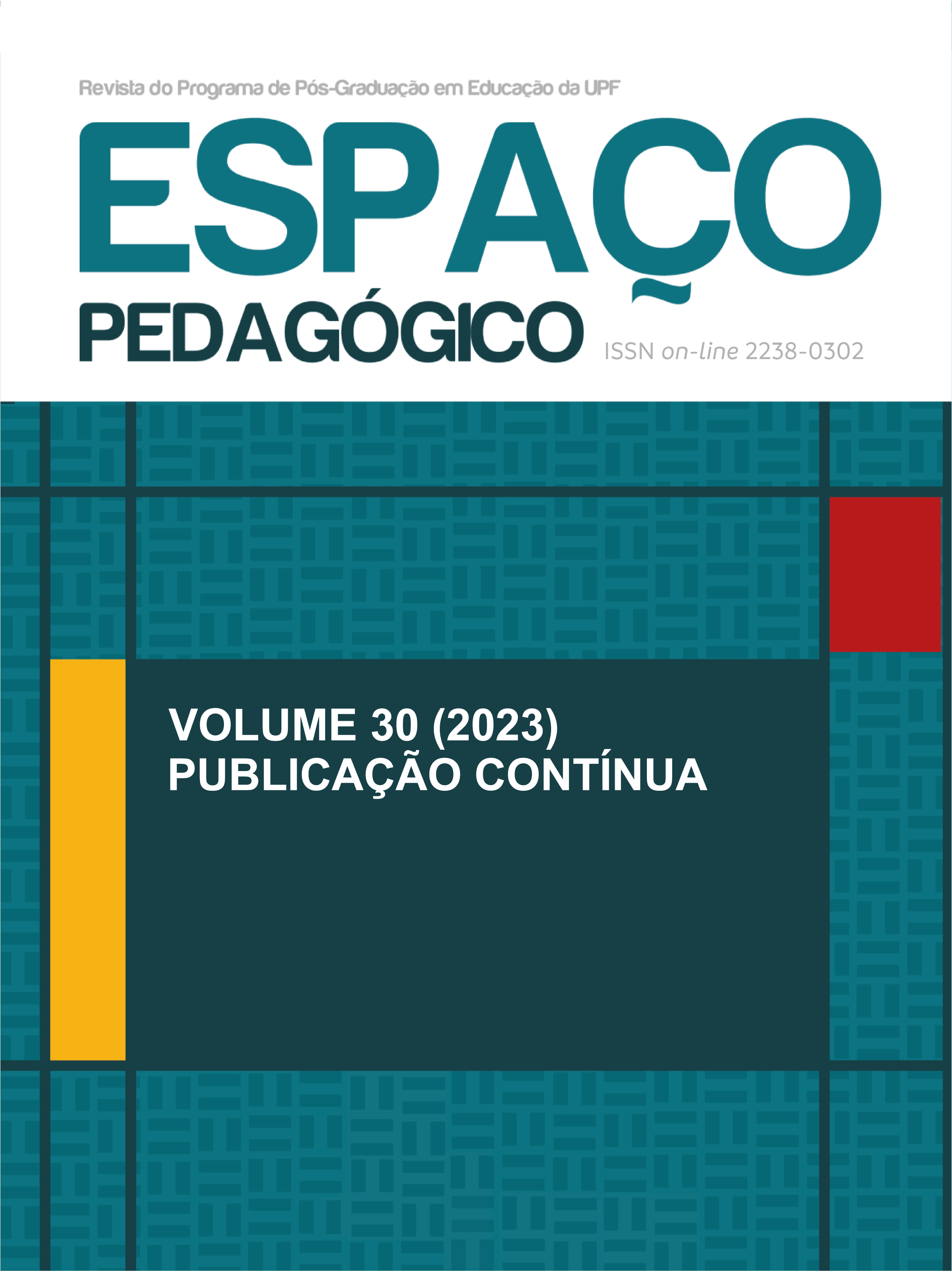Podem as práticas epistêmicas contribuir para o desenvolvimento de competências metacognitivas?
DOI:
https://doi.org/10.5335/rep.v30i0.14897Palavras-chave:
Metacognição; Práticas Epistêmicas; Ensino de Ciências.Resumo
Pesquisas da área de Educação em Ciências e das Ciências Cognitivas têm indicado a necessidade de abordagem de aspectos sociais para a promoção, em sala de aula, dos processos de pensamento dos estudantes sobre aspectos vinculados à construção e à justificação dos entendimentos sobre ciências e sobre fenômenos do mundo natural. No entanto, muitos desses estudos têm abordado somente a cognição, suprimindo a metacognição, isto é, o conhecimento que cada estudante tem dos próprios processos e produtos cognitivos, bem como o monitoramento e avaliação desse sistema cognitivo. O objetivo deste artigo é ponderar sobre o papel das práticas epistêmicas como promotoras de competências metacognitivas, em ações didáticas, no ensino de ciências. A reflexão e discussão desenvolvidas sugere uma relação entre a mobilização de práticas epistêmicas e o desenvolvimento de competências metacognitivas, no que respeita aos elementos metacognitivos que constituem a regulação da cognição (planejamento, monitoramento, avaliação, gestão da informação e depuração). Esta relação consolida a aprendizagem como um processo (meta)cognitivo e social. Como perspectivas para estudos futuros, destaca-se a importância de analisar e refinar as potencialidades da metacognição, aliada às práticas epistêmicas, como orientadoras pedagógicas no campo educacional e como referencial téorico-metodológico.
Downloads
Downloads
Publicado
Edição
Seção
Licença

Este trabalho está licenciado sob uma licença Creative Commons Attribution 4.0 International License.



